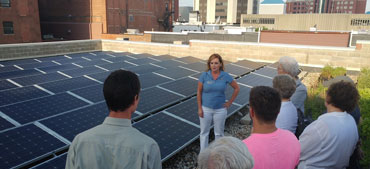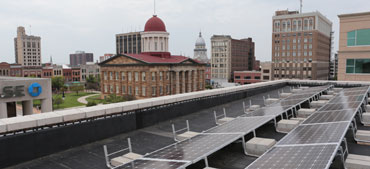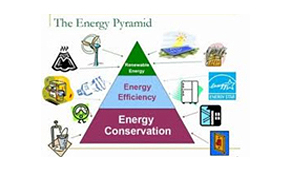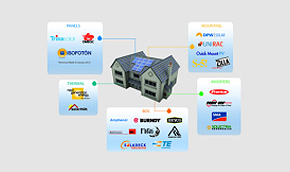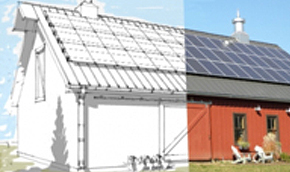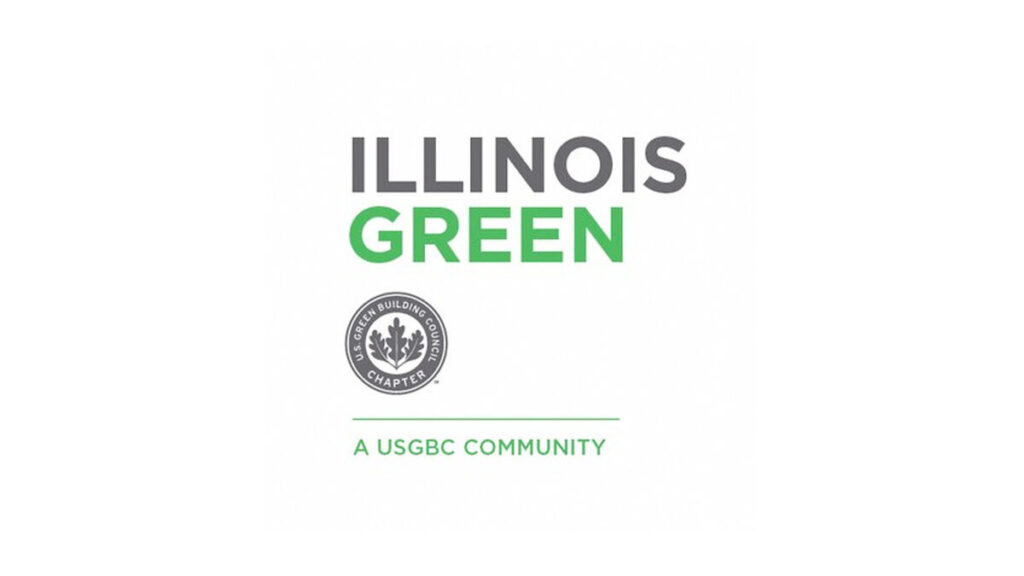Let’s Not Cut Out Solar Energy For Municipal Utilities and Rural Electric Co-Ops
Michelle Knox
When the Future Energy Jobs Act (FEJA) was signed by Gov. Rauner in December of 2016 it was called the single most significant clean energy policy in the state’s history. Supporters of the legislation hailed elements of the law that would bring community solar to Illinois, and others pointed to innovative programs like the Illinois Solar for All program, which was intended to make solar energy a catalyst for economic development in Illinois’ lower income communities.
Last week, however, a different interpretation of the law came down, and unless it is fixed, Illinois Solar for All will only be available to some, and those in Springfield, will be among those on the outside.
An Administrative Law Judge at the Illinois Commerce Commission recommended that the Commissioners adopt a proposal by ComEd that contends that municipal and cooperative utilities should be excluded from many FEJA funding opportunities including the community solar program and the Illinois Solar for All Program. I’m hopeful that the Commission will recognize how this decision constricts the benefits of FEJA, and I want to outline some of those concerns.
FEJA compliance is accomplished by the purchase of renewable energy credits (RECs) created by renewable energy projects. If adopted, the state would not purchase renewable energy credits (RECs) from rooftop and community solar installations located in municipal and rural electric co-op territories. This would be devastating to solar development for many Central and Southern Illinois homeowners, businesses, and renewable energy companies. In fact, unless it is overturned, it would cut out about 23.7 percent of electric customers in Central and Southern Illinois, excluding them from community solar projects and the widely applauded low-income solar program.
My company, WindSolarUSA , is a woman-owned business that I founded in 2008. Since June of 2015, almost 70 percent of the projects that my business has developed have been located in municipal and cooperative territories. Our own capital city of Springfield is a municipal utility and, if the ComEd proposal is adopted, will be excluded from participation in these programs. Historically all utility customers in the state have been allowed to participate in REC programs administered by the Illinois Power Agency. In fact, while the proposal would exclude some Illinois communities from participating in programs, the state would still be allowed to use money collected through law to buy RECs from utility scale wind and solar projects located out of state!
I have no question that when legislators passed FEJA, they intended the law to expand opportunities across the entire state. I am confident that when Gov. Rauner signed the law, he couldn’t have envisioned huge swaths of Central and Southern Illinois being cut out of the benefits. I am also hopeful that the Commission will fix this wrong.
Leaving Illinoisans out of funding opportunities that would allow them to enjoy both the economic and environmental benefits that solar energy development will stunt job growth, it will block investment, and it will stifle revenue growth.
The passage of FEJA was celebrated across the state, now it’s time for the Commission to affirm that promise by saying that if a REC can come from Iowa wind power, it can come from a rooftop in co-op territory in Central Illinois. If Illinois Solar for All is good for Chicago, it’s good for Springfield. If community solar can happen in Peoria, it should also happen in Naperville. Let’s all hope the Commission does the right thing!
Michelle Knox is he owner and founder of WindSolarUSA, Inc. based in Springfield.


